#truly the fantasy secretary trope appeals to me for so many reasons
Text
Fuckin screaming
My boss, after reading the RFP I wrote last week: oh but I didn't think the history section explained the use case well enough [well you didn't give me any info so I was going based on what I could piece together], your appendix didn't include xyz fields [YOU DIDNT TELL ME THEY EXISTED AND I HAD NO WAY TO FIND THAT OUT SINCE y'all aren't even following BASIC RM principles when it's not convenient], what about xyz problem [ITS IN THE FUTURE STATE REQUIREMENTS. DID U NOT FUCKIN READ THEM. THEYRE IN BRIGHT RED FOR A REASON], your questions for the vendor seem too vague, we need specifics and answers in 2 weeks [specifics in what sense??? You haven't laid out a plan for this!!! It's not MY FAULT y'all decided to engage a vendor BEFORE doing an RFP or even OUTLINING THE BARE MINIMUM REQUIREMENTS FOR YOUR PROPOSED SOLUTION. Like ofc it's gonna be weird and clunky YOURE DOING THE WHOLE PROCESS BACKWARDS. AND THE MFING COMMITTEE CANT GIVE ME A SINGLE ANSWER SO IM PULLING FUNCTIONAL REQUIREMENTS OUT OF MY ASS]
NOTABLY she did not comment on the requirements section. Y'know. The actual core and central purpose of this document. The whole reason it was given to ME (the only computer literate archivist in the group) like??? HELLO. Please. Please sit down and tell me what you think the purpose of this document and the process of engaging with a vendor is like. Please. Please tell me how you think ANY of this works, or how you expect it to work on your whack ass timeline
The IT guy?? On the other hand??? I asked him for a second pair of eyes on the technical requirements (BC unlike SOME people I know my fuckin limits and I'm primarily a records manager not a database designer) and he was like oh no it looks great you nailed it and it's exactly the type of document they should be using.
So like. One of the only other ppl in the building who knows what they're talking about agrees with me. He however has the ability and a legitimate reason to recuse himself from this whole shitshow. *I* do not.
#franposting#i am genuinely like so mad rn.#WHERE IS THE COMPETENCY. OR AT THE VERY LEAST COMMON FUCKIN SENSE#OR LIKE#KNOWLEDGE OF HOW THE WORLD WORKS AND BUSINESS PLACES OPERATE#i know we're all la di da in non profit land but like#HELLO??? THIS IS NOT HOW WE ENGAGE TECH COMPANIES MA'AM#nor is it how we get FUNCTIONAL solutions to this ACTUALLY VERY EASY TO SOLVE PROBLEM YALL ARE JUST DUMB#im so mad im not doing ANYTHING else today out of spite#im gonna sit at my desk and listen to the tge audiobook#oh csevet we're really in it now.#truly the fantasy secretary trope appeals to me for so many reasons#but one of the biggest is just. i am a competent organizer and fast learner and logical thinker surrounded by IDIOTS ALWAYS#and its like. wrangling my superiors and higher ups into seeing sense#because they dk what theyre talking about. but you are just a lowly worm so ofc you cant just outright SAY that#you have to coach them qith obsequiousness into thinking they reached the conclusion themselves#bonus points for women not being allowed to be confident and prideful in their capabilities#i am going to fuckin. explode#once again. make me supreme dictator of information management in my workplace or die by my sword
10 notes
·
View notes
Text
Anonymous asked: I really enjoy your erudite and literary posts about James Bond in your blog very much. Your most recent post about Connery as best cinematic Bond and Dalton as the best literary Bond was brilliant. Although the PC brigade have been inching towards making Bond a woman or even non-white, Ian Fleming’s legacy of a suave but cold hearted English gentleman spy hasn’t been completely trashed. As someone familiar with Fleming literary lore can you also tell me where was James Bond educated? Was it Oxford or Cambridge? I was having a discussion over Zoom with friends and the Oxonians like myself thought it was Oxford because in Casino Royale with Daniel Craig it’s made very plain it was Oxford. Your thoughts?
I appreciate your kind words about my posts on James Bond and his creator Ian Fleming. It’s very hard to ignore the cinematic James Bond because he is very much an icon of our modern culture that needs no translation to transcend across cultures. Alongside Sherlock Holmes, another British literary and cinematic export, the name alone speak for itself.

James Bond appeals to both genders very well.
For the men, Bond dresses well and lives in a care free way. He is both ferociously intelligent and resourceful to get out of any tight corner. He drives incredible cars (from the incredibly stylish Aston Martin DB5 to the incredibly awful AMC Hornet) and uses awesome technology (he is the archetypal boy with toys). He's not afraid to get down in the dirt to fight or engage in lethal gun-play and spectacular car chases. He sleeps with beautiful women, regardless how strong and independent they are (or even lesbian if we’re being honest about Pussy Galore).
For us ladies, while he's not averse to action, he's also a cultured gentleman with suave and sophisticated manners. He's also a generally pretty good looking guy. In many ways, he's a conventional male ideal. So while his conventional good looks and manners aren't for everyone, they hit right the sweet spot of what women like. For everyone, he's a spy! Not at a grey real world nondescript spy, but a cool spy fighting larger than life bad guys whose bland sartorial choices scream mad super villain. It's a very black and white world that James Bond lives in. These bad guys truly are villainous in the desire to re-order humanity, and we need a debonair British MI6 agent to save us from these mad men who want to harm us by laying waste to a bonkers Armageddon.
When all is said and done I think that what makes James Bond so iconic across gender and generations is what Raymond Chandler wrote back in 1959, “every man wants to be James Bond and every woman wants to be with him”.
That sounds about right. Men want to be him, women want to be with him.
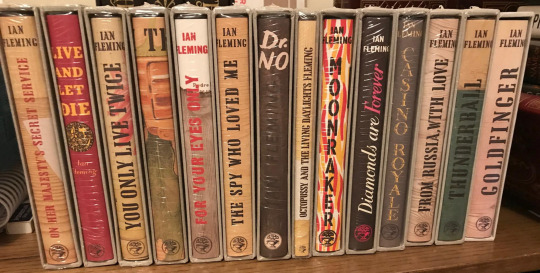
I know my first introduction to James Bond was through my grandfather on my Anglo-Scots father’s side who was a dashing gentleman in his day with a long rumoured hush hush work for Her Majesty’s government firmly shoved under the carpet to avoid further discussion that he - being self-effacing and humble - would find embarrassing that would paint him in any heroic light. Years later he had bought his Bahamas beach pile in Harbour Island out in the Caribbean for the family to rest up from cold winters in Britain. Amongst his immense stack of books dotted around the place were (and still are) first editions of Flemings novels which a few were signed by the author as he on occasion met Ian Fleming when he would sail over to Jamaica (they were also OEs which helped). We were not allowed to touch these but instead picked up the dog earred paperbacks that still retained their 60s musty smell.
On my teen sojourns there I would spend time along with my siblings just reading anything we could find to take to the beach or lounge around in a hammock or a chaise longue. That’s how I came to read the Fleming books - really out of necessity to avoid boredom on a beach (which isn’t really my thing as I prefer the rugged outdoors). But I was pleasantly surprised how well written the books were and I actually enjoyed the stories; it was a refreshing change from the more heavy literary tomes I was trying hard to wade through. As for the Bond films, I watched them on film nights at boarding school; I remember having a school girl crush on Connery, Dalton, and Brosnan.
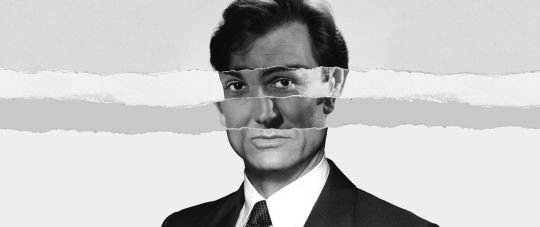
There are many reasons for the successful longevity of James Bond in popular culture and literature but perhaps one of the most pertinent to our discussion is that James Bond is actually a blank slate and therefore malleable as a character and so he can capture the current zeitgeist in time.
This ability of the film to adapt to different generations while remaining relevant is an important factor for its longevity. For example, the early James Bond films were unashamedly sexist with characters using women as objects and discarding them. In the most recent James Bond films, certainly starting with Timothy Dalton, there is a subtle change in attitude with a few chauvinist attitudes.
James Bond today is more serious, seduces fewer women, and is more respectful towards women in his life, including his boss. This shows how the film changes concerning the rise of feminism in the West. For example, Miss Moneypenny used to be a minor character in the very first James Bond films. Today, she is more formidable and doesn’t tolerate sexist remarks.
Perhaps it is precisely because of this blank slate malleability that has allowed different actors that have been cast to play James Bond their own way - rather than get a straight like for like Scottish sounding actor to replacing Connery for example the film producers went across to Moore via Lazenby for example - and letting each actor imbue the super spy with different moods. They each added their own colour from the same broad palate to create different tones. However, each of these characters maintained the essential character that defines James Bond. The actors have broadly stayed true to the inherent mix of character and class associated with James Bond.
For this reason I have some empathy towards your concern that Bond would be held hostage to the current zeitgeist of white washing or genderising everything so as to avoid being a victim of cancel culture. But it’s only empathy because I feel there is a danger of misunderstanding just who James Bond is and what he represents.
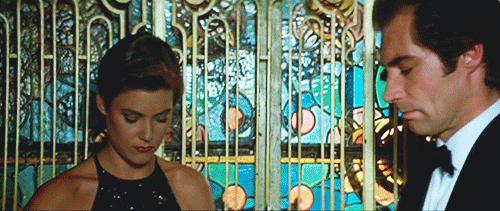
What do I mean by this?
I mentioned James Bond is a malleable character to the point he’s presented as a blank slate. This is ‘literally’ true - certainly as far as the books go. Ian Fleming doesn’t tell us much about Bond other than his appearance in his books. Indeed - as I mentioned in my past blog post on Connery as the best Bond - Fleming wasn’t convinced by Connery as Bond. He was reported to have said, ‘I’m looking for Commander Bond and not an overgrown stuntman’ and even dismissed Connery as “that fucking truck driver”. Fleming has good reason to rage. His Bond as written in the books was someone like him.
Like Fleming, Bond was an Eton educated Englishman; an officer and a (rogue) gentleman who was a lieutenant-commander in Naval Intelligence. As Connery began to wow and win over Fleming as Bond, Fleming had a change of heart. Fleming in his later Bond books re-wrote a half-Scottish ancestry for Bond as a tribute to Connery’s portrayal. Bond’s Scottish father was a Royal Navy captain and later an arms dealer, Andrew Bond from Glencoe; and his mother, Monique Delacroix, was Swiss from an industrial family. Bond himself was born in Zurich. Bond isn’t English at all but half-Scots and half-Swiss according to literary canon.
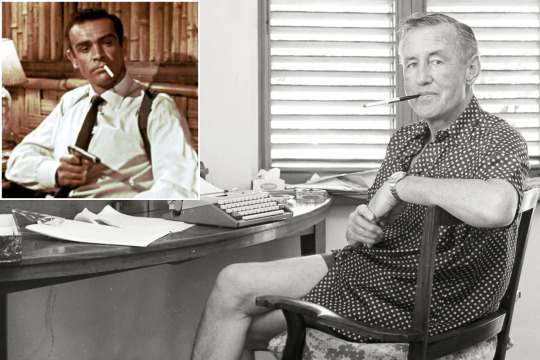
So I mention this because the question who can play James Bond is not as straight forward as it might seem.
But clearly we now have a canon of work, both cinematically and in the literature, where we have base line of who Bond is - or what audiences could possibly suspend their disbelief and go with what is presented to them as James Bond.
I do vaguely remember the hullabaloo and hand wringing around Daniel Craig playing Bond because he didn’t conform to the traditional tall, dark, and handsome trope of James Bond super suave spy. People couldn’t get past his blond hair. Some still can’t. But in my humble opinion he has been an outstanding James Bond and has reimagined Bond in a fresh and exciting way. Craig is in fact mining the Fleming books for his characterisation of Bond as a suave, gritty, humourless killer of the books. Dalton got there before him but that’s a moot point. To our current generation Craig has modernised Bond and dusted 007 down from being a relic of the Cold War to being a relevant 21st Century super spy.
Can anyone play James Bond OO7? Yes and no. It’s arguing that two different things are one and the same. They are not. James Bond is separate from OO7.
Can a woman play Jane Bond or a black woman or non-white man play Black Bond? Respectfully, no. That’s not who James Bond is.
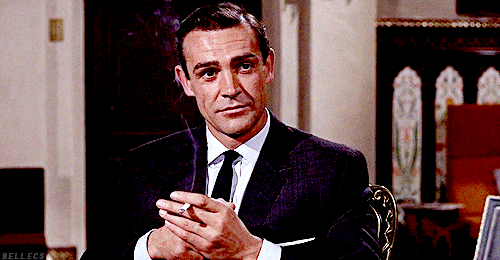
James Bond is a flesh and blood character with a specific genealogical history - whether in the books or on the screen. This Bond has literary back story that is canon and makes him who he is. Bond does transcend time - he can’t be 38 years old for over 75 years in the real world - but at the same time his character only makes sense when rooted in a specific historic context we know existed (and still exists) and not some wishy washy make believe fantasy of British society. He’s an Old Etonian and therefore an upper middle class male product of the British establishment that is identifiable in a very British cultural context.
Jane Bond would have to have gone to Cheltenham Ladies College, Benneden, or Roedean I suppose if we are talking about equivalence - but such girls’ boarding schools were not the breeding ground for future spies (more likely they married them or became trusted secretaries in the intelligence services as well as flower arranging in their Anglican parish church).
I believe they are letting in black pupils on bursaries at Eton these days to be more inclusive but again it’s an an exception not the rule and Eton doesn’t even get public credit for the inclusive work they try to do because it’s not well known.
Moreover we know Bond loses his Scottish-Swiss parents in a skiing accident. I don’t mean to sound racist but I ski a lot in Switzerland and I can say you don’t really find droves of non-white skiers on the slopes of Verbier or Zermatt. Of course there are a few but it’s the exception and not the norm. Again, I’m not trying to be racist but just point out some obvious things when it pertains to the credibility of character that underlines who Bond is. You pull one thread out of the literary biography and the danger is the rest of the tapestry will unravel.
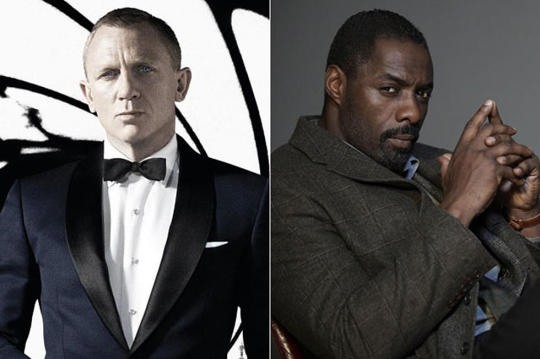
Of course one could try and go for a Black Bond on screen and then hope there is a huge suspension of belief on the part of the audience. But I suspect it’s a bridge too far. It just doesn’t fit. Audiences around the world have an image of who Bond is - British at the very least but also male (damaged and flawed in many ways) and coming from a specific British social class background that serves as an entree to a closed world of English gentleman clubs, Savile Row, English sports cars, and the hushed corridors of Whitehall.
Any woke film maker with an ounce of creative vision and talent and one who is invested in this would be better off creating a new character entirely - with their own specific biography that is both believable and relatable. Can you imagine an American James Bond? What a ghastly thought. Or worse a Canadian one? Canadians are far too nice and far too apologetic to produce a cruel cold eyed killer. But look what clever film makers like Spielberg and Lucas did with Indiana Jones and even later Doug Liman did with Jason Bourne - both fantastic creations that are part of the cultural zeitgeist now.

Or look at Charlize Theron who plays a MI6/CIA/KGB triple agent in Atomic Blonde or Rebecca Ferguson as Ilsa Faust in any of the Mission Impossible movies. I would eagerly watch any movies with these two badass women on the screen. All this talk about making Bond a woman or even coloured is just lazy thinking at best and at worst kow towing to the populist tides of PC brigade.
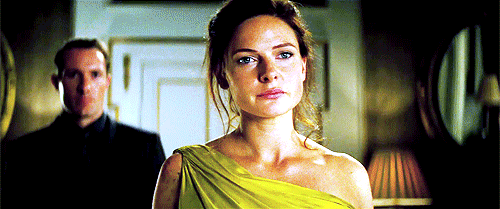
But I firmly believe one can have a female and a person of colour portraying 007. This is because James Bond and OO7 are two different things entirely. Many mistakenly believe 007 is Bond’s own code name and specific alias to him alone.
007 is a license to kill for a very specialised kind of intelligence officer. Bond has that privilege for as long as he serves at the service of Her Majesty’s pleasure. His 007 license can be revoked - and it has been in the past Bond films - and he’s back to being a just another desk jockey civil servant in Whitehall. So my point is OO7 is not sacred to Bond’s identity. Bond could continue to be Bond even if M took away his 007 license to kill.
The origins of the Double O title may date to Fleming's wartime service in Naval Intelligence. According to World War Two historian Damien Lewis in his book Churchill's Secret Warriors, agents of the Special Operations Executive (SOE) were given a “0” prefix when they became "zero-rated" upon completion of training in how to kill. As part of his role as assistant to the head of naval intelligence, Rear Admiral John Godfrey (himself the inspiration for M), Fleming acted as liaison to the SOE.
In the novel Moonraker it’s established that the section routinely has three agents concurrently; the film series, beginning with Thunderball, establishes the number of OO agents at a minimum of 9. Fleming himself only mentions five OO agents in all. According to Moonraker, James Bond is the most senior of three OO agents; the two others were OO8 and OO11. The three men share an office and a secretary named Loelia Ponsonby. Later novels feature two more OO agents; OO9 is mentioned in Thunderball and OO6 is mentioned in On Her Majesty's Secret Service.
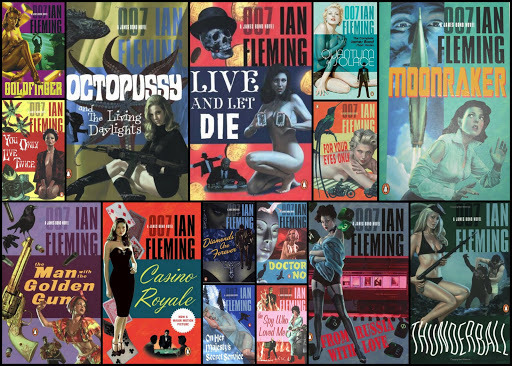
Other authors have elaborated and expanded upon the OO agents. While they presumably have been sent on dangerous missions as Bond has, little has been revealed about most of them. Several have been named, both by Fleming and other authors, along with passing references to their service records, which suggest that agents are largely recruited (as Bond was) from the British military's special forces.
Interestingly, In the novel You Only Live Twice, Bond was transferred into another branch and given the number 7777, suggesting there was no active agent 007 in that time; he is later reinstated as 007 in the novel The Man with the Golden Gun. As an aside, in Fleming's Moonraker, OO agents face mandatory retirement at 45 years old. However Sebastian Faulks's Devil May Care (an authorised Bond adventure from the Fleming estate and therefore arguably could be considered canon) features M giving Bond a choice of when to retire - which explains why Roger Moore (God bless) went past his sell by date.

In the films the OO section is a discrete area of MI6, whose agents report directly to M, and tend to be sent on special assignments and troubleshooting missions, often involving rogue agents (from Britain or other countries) or situations where an "ordinary" intelligence operation uncovers or reveals terrorist or criminal activity too sensitive to be dealt with using ordinary procedural or legal measures, and where the aforementioned discretionary "licence to kill" is deemed necessary or useful in rectifying the situation.
The World is Not Enough introduces a special insignia for the 00 Section. Bond's fellow OO agents appear receiving briefings in Thunderball and The World Is Not Enough. The latter film shows a woman in one of the 00 chairs. In Thunderball, there are nine chairs for the OO agents; Moneypenny says every 00 agent in Europe has been recalled, not every OO agent in the world. Behind the scenes photos of the film reveal that one of the agents in the chairs is female as well. As with the books, other writers have elaborated and expanded upon the OO agents in the films and in other media.
In GoldenEye, 006 is an alias for Alec Trevelyan; as of 2019, Trevelyan is the only OO agent other than Bond to play a major role in an EON Productions film, with all other appearances either being brief or dialogue references only.
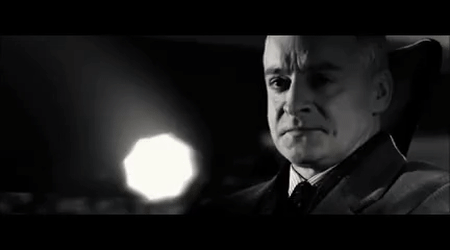
In Casino Royale with Daniel Craig’s first outing as Bond, we see in the introduction the tense exchange between Bond and Dryden, a section chief whom Bond has been sent to kill for selling secrets.
James Bond: M really doesn't mind you earning a little money on the side, Dryden. She'd just prefer it if it wasn't selling secrets.
Dryden: If the theatrics are supposed to scare me, you have the wrong man Bond. If M was so sure I was bent...she'd have sent a Double-O. Benefits of being Section Chief...I would know of anyone being promoted to Double-O status, wouldn't I? Your file shows no kills...and it takes -
James Bond: - two. (flashback of Bond fighting Dryden's contact in a bathroom.)
The OO is just a coveted position and nothing to do with who occupies it. Ito use a topical comparative example it’s like a football team in which a new star player would be given an ex-player’s shirt number e.g. Messi wears Number 10 for Argentina which is heavily identified with the late great Maradona. So conceivably there would be no problem having a woman or anyone else play 007. I think it would be an interesting creative choice to have a woman or someone else play OO7 and Bond is out of the service and yet he has to work together with this new OO7 - the creative tension would be a refreshing twist on the canon.

Your question about James Bond’s Oxford or Cambridge education is more easier to answer.
It really depends again which Bond one is talking about. The literary James Bond or the cinematic Bond.
In the Fleming books, James Bond’s didn’t go to Oxford or Cambridge or any of the other great universities of Britain. In the books Bond’s education is not gone into much detail. We know he was raised overseas until he was orphaned at the age of 11 when his parents died in a mountaineering accident near Chamonix in the Alps. He is home schooled for a time by an aunt, Charmain Bond, in the English village of Pett Bottom before being packed off to boarding school at Eton around 12 years old. Bond doesn’t stay long as he gets expelled for playing around with a maid. He is then sent to his father’s boarding school in Scotland, Fettes College.
Bond is then briefly attends the University of Geneva - as Ian Fleming did - before being taught to ski in Kitzbühel. In 1941 Bond joins a branch of what was to become the Ministry of Defence and becomes a lieutenant in the Royal Naval Volunteer Reserve, ending the war as a commander. Bond applies to M for a position within the "Secret Service", part of the HM Civil Service, and rises to the rank of principal officer. And that’s it.
In the cinematic Bond universe things get more complicated and even contentious as you alluded to in your question. It’s never made quite clear which of the two - Oxford or Cambridge - Bond attended because it depends on how much weight you attach to the lines being spoken in each of the films where it is raised.
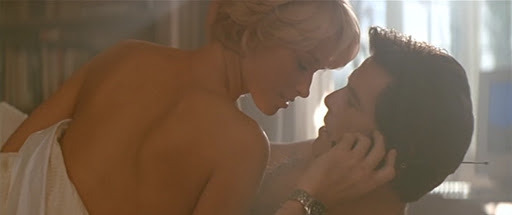
In Tomorrow Never Dies, Bond is up at Oxford (New College to be exact since his Aston Martin DB5 was parked in the courtyard at the entrance). He is seen bedding a sexy Danish professor, Inga Bergstrom, to brush up on his Danish (to which Moneypenny on the phone retorts ‘You always were a cunning linguist’). But it’s definitely doesn’t mean Bond studied there as an undergraduate.
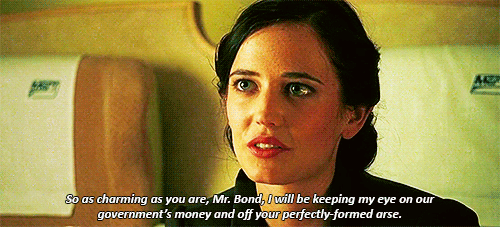

Casino Royale is the film many think yes, James Bond went to Oxford because it is mentioned by Vesper Lynd (Eva Green) as she sizes up Daniel Craig’s Bond on the train. Here is the full quote as said by Vesper Lynd, “All right... by the cut of your suit, you went to Oxford or wherever. Naturally you think human beings dress like that. But you wear it with such disdain, my guess is you didn't come from money, and your school friends never let you forget it. Which means you were at that school by the grace of someone else's charity - hence that chip on your shoulder. And since your first thought about me ran to "orphan," that's what I'd say you are.”
The thing to note is that it’s Vesper Lynd taunting Bond and even then she takes a wide stab by saying ‘Oxford or wherever’ because she doesn’t really know and Bond doesn’t oblige her with an answer.
That whole scene struck me as strange because she’s guessing by the cut of the suit it must be Oxford (or Cambridge). Bond is wearing an Italian suit (Brioni to be specific) and not and English Savile Row one that presumably someone of Bond’s taste and background would be sporting.
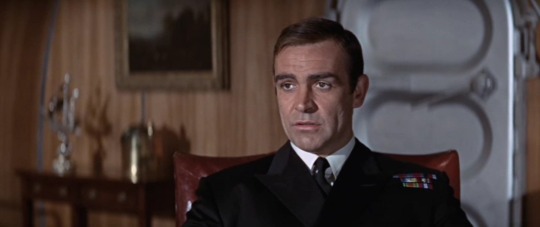
A more plausible answer if we are going by the cinematic Bond universe is Cambridge. Indeed it is stated explicitly by Bond himself. Can you guess?
You Only Live Twice which is has the distinction of being the only Bond film (as far as I can tell) from being set in just one country - Japan.
You remember the scene. Lieutenant commander James Bond has just had a briefing with M on board a submarine and is naturally flirting with Moneypenny on his way out. Moneypenny playfully tosses him a Japanese phrase book, saying he might need it.
“You forget,” Bond responds with an expression just short of a smirk as he tosses it back to her, “I took a first in oriental languages at Cambridge.”
So it seems James Bond is a Cambridge man.
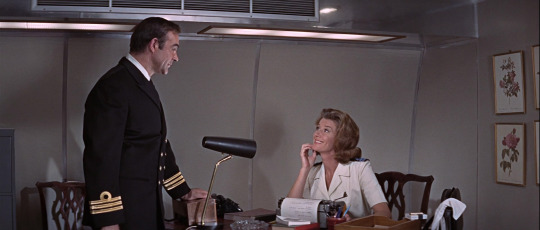
A first means - as any British university student would know - first class honours. It’s the highest classification grade one can get in their undergraduate degree ie a ‘first’. Although at Cambridge, like Oxford, you can also get a double first in the part I and part II of the Tripos. Both universities also award first-class honours with distinction, informally known as a ‘Starred First’ (Cambridge) or a ‘Congratulatory First’ (Oxford).
Another oddity is he says ‘oriental languages’ when one got a degree in ‘oriental studies’ at the Oriental Faculty at Cambridge. That is until 2007 when Cambridge bowed to public and student pressure and chose to drop its Oriental Faculty label and instead adopted the name the Faculty of Asian and Middle Eastern Studies. Oxford still hangs on to its name the Faculty of Oriental Studies.
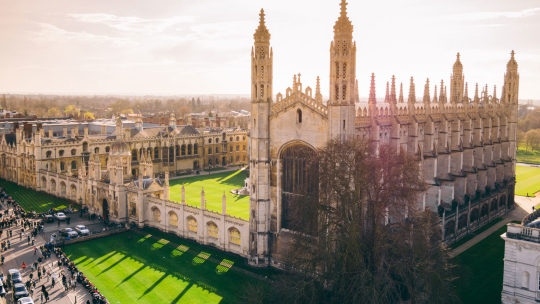

My only reservation about crowing over an Oxonian is how truthful was Bond being with Moneypenny in this scene?
Is this line meant to be taken seriously or ironically? Most people seem to take it seriously, despite much of Connery's dialogue being obviously ironic and playful. Certainly, Bond is shown to have never been to Japan before and is incapable of saying anything in Japanese other than the odd "sayonara" and "arigato." But then again Bond does know the correct temperature sake is meant to be served at. So there’s that.
Or it could be Bond was speaking a half-truth. I know speaking from experience as someone who very nearly read asian languages instead of my eventual choice of Classics that ‘Oriental languages’ at the ex-Oriental faculty in Cambridge can mean many other languages e.g. Sanskrit, Hindi, Farsi, Hebrew, Arabic as well as Korean, Japanese and Chinese. It opens up so many other delicious possibilities for Bond. If he read Arabic then perhaps he’s being deeply ironic with Moneypenny (after all she would have drooled over read his MI6 personnel file).
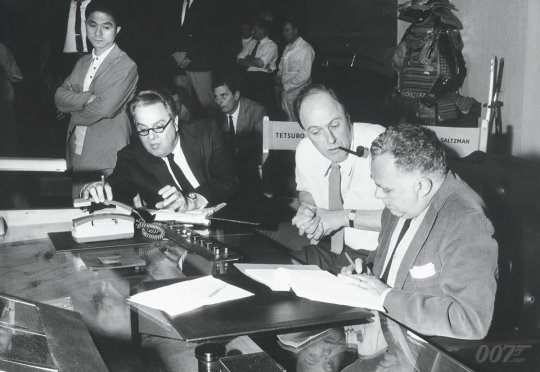
If you think I’m losing my mind then ponder on the fact it was Roald Dahl who penned the screenplay of You Only Live Twice. Dahl was not above snark. Indeed pretty sure he would have got a starred first in snark at any university.
Of course the most obvious explanation is that it’s plot armour as a way for Bond to just get on with the story by suspending the audience belief. Why wouldn’t Bond know Japanese? He seems to know everything else imaginable.
However if it ever was it’s now become canon as EON - the production company behind the Bond films - have stated officially for the fandom that Bond’s official bio has it that he went to Eton and Cambridge, where he got a first in oriental languages. So that seems settled then.
In hindsight it makes perfect sense that Bond went to Cambridge since historically Cambridge has provided the bulk of the spies not just for Her Majesty’s service but also for the other side, the Russians - the so-called Cambridge Spies of Philby, Maclean, Burgess, Blunt, and Cairncross, and a host of other traitors. We seem to be an equal opportunities employment service.
I’m sorry to disappoint you and other Oxonians that despite what you might think James Bond didn’t attend Oxford. Believe me as a Cantabrigian it gives me no pleasure to say this…..too much.
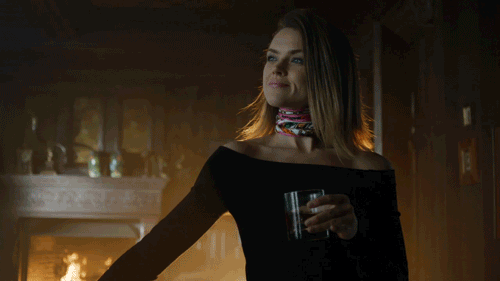
Thanks for your question.
#ask#question#james bond#bond#film#cinema#ian fleming#oxford#cambridge#oxbridge#university#education#cancel culture#culture#society#britain#british#personal
122 notes
·
View notes
Text
Kdrama Sexist/Toxic Male Lead Tropes
(originally made this post as part of another post about Run On but it got to be so long I just thought I’d made this list it’s own post)
-Possessive and easily jealous, and this is often played off as romantic. For a large portion of kdrama watchers who are younger, and for the majority of us who aren’t chased all the time by hot men, this toxic trait can easily be sold to us as an exciting and flattering trait. But this is in fact not respectful of the female lead’s autonomy. I enjoy the little humorous jealousy moments, (I am reminded of Crash Landing on You) but too often this leads to the classic “two male leads each grab the innocently wide eyed female lead and glare at each other” trope. Women are not ropes to play tug of war with! If jealousy over the instances like the girl simply having a conversation with another guy rupture into real problems in the relationship it is not romantic, but possessiveness is often mistakenly portrayed as an expression of love, when really possessiveness is just that: possessiveness over an object.
-Uses violence to solve problems. This is another thing that can be easily seen as flattering--someone is willing to go to great lengths to protect you/defend your honor/whatever the reason is for the male lead to use violence. This trope was deconstructed in the American movie 500 Days of Summer, where the male lead punches a guy “to defend the honor” of the female lead, but she when she is upset and embarrassed at the situation, he gets angry at her for not being excited over his violent sacrifice.
-The typical “tsundere” narrative of abusive language, but paired with romantic gestures, usually the Grand Romantic Gesture trope. I see this all the time, where the guy berates the girl, sometimes to point of just full on bullying, but then he throws his jacket at her when she’s cold, holds the umbrella over her while he gets wet, etc., In other words he may be verbally abusive but it doesn’t matter because he Truly Loves her. And that she should accept that and understand that about him and not expect him to be polite and respectful.
-He treats everyone but the female lead like trash. Well...he often treats the female lead like trash at first too, but this quality is also marketed as flattering. He treats everyone badly but you’re different! In reality this is super toxic. In fact, it is essential that a person treats *everyone* with decency if they are to meet the baseline requirements of being a person capable of giving and receiving love in a healthy relationship.
-He chases her one sidedly. Oftentimes he chases her even when she rejects him, which shows that dominating, male persistence is a behavior to be rewarded. Again, this is a fantasy easily marketable when many of us aren’t chased around by hot men. It is flattering for a person to be so interested in us that they are incredibly persistent, but this fantasy had very unhealthy, and even harmful real life connotations. There is a very important line between friendliness/respectful attention/flirting, and creepy and domineering. I think it is also equally important to note that in this toxic trope, it is important to teach both men and women that no means no and yes means yes. Not that you can’t have playful/teasing banter, but playing hard to get when you really want to be gotten, is an unhealthy coping mechanism for cowardice in relationships.
I think for this one as with other tropes on this list, it appeals to our childish, insecure, and relationship-immature side of ourselves that would rather have everything fall into place than be honest, vulnerable, and have agency in our romantic interactions. What I mean is, the fantasy of a hot male lead persistently pursuing us after a destiny meet cute is a fantasy where we don’t ever have to put ourselves out there. Where don’t have to consciously try to meet new people, express interest in others, set boundaries, i.e. do the hard work of negotiating our place within other people’s lives.
The hallmark of a bad drama for me is when the give and take between the male and female lead is: the female lead has to put up with the meanness and constant mistakes of the male lead as he hurts her (usually in tangent with the Noble Idiocy trope, where he breaks up with her and steps all over her “for her own good” for some bs reason), but in return she gets the Grand Romantic Gesture, and the male lead does most of the chasing. In a healthy relationship, there aren’t constant hurtful arguments, and both do an equal share of the “chasing,” or a better term would be meeting each other halfway in expressing interest in the other.
-Power imbalance. It really disturbs me how Kdramas fetishize power imbalances between male and female characters to create the helpless/incompetent/somehow indebted but also plucky/cheerful/abuse-taking female lead. This can manifest itself very overtly in the many Kdramas between CEOs and secretaries, which I still cannot believe are popular in 2021. Secretary Kim did a better spin on the usual trope--the secretary holds the power of being very good at her job, and therefore indispensable and respected in her own right, but it remains a mystery to me why these super narcissistic and childish CEOs are played off as “adorable manchilds” that always need a little soothing of their ego. But to return to the power imbalance, besides obvious power imbalances of wealth/power/etc., oftentimes the guy has supernatural powers, or by nature of his job has abilities that render him the “protector” in the relationship (My love from another star, descendants of the sun), or the girl is infantilized in some way to need to protection from the male lead (legend of the blue sea, she is a mermaid and therefore dependent on the male lead for guidance in the human world, bring it on ghost as well). I think these latter power imbalances are constructed into the setting of the story because more overt forms of power imbalances are frowned upon now, but they serve the same patriarchal purpose.
This power imbalance inevitably leads to the female lead putting up with some abuse from the male lead because she “needs” him for some other end, and him holding his power over as a way to keep her close. It fits very well into the enemies to lovers trope in this way, especially some contractual enemies to lovers, where due to the power imbalance he is able to exploit/use her in some way, and keeps her close, and she hates him but has to put up with it for her own survival in some way, but they slowly fall in love. It’s super toxic and not at all romantic because they didn’t choose each other at all, they just were pushed together by circumstance, but again it buys into our fantasy of falling in love due to circumstance, rather than our own agency.
-Overly protective (OP) vs respectfully supportive. (RS) Essentially I can divide Kdramas into these two categories, OP and RS. OP romances can commonly be found in love triangles (where jealousy flourishes) and high school romances (where characters usually have less of a personality lol), and RS relationships are more common in working adult romances, where each character is pursuing their career/dreams and they support each other in those dreams. OP relationships infantilize the female character, render her as just an object in need of saving, and power dynamic between the leads is usually he constantly needs to save her, and in return she “softens”/“heals” him which, under deeper analysis, reveals itself to be quite an insidious and harmful stereotype, the kind of psychology that keeps women in domestic violence relationships. RS relationships are also better in that the leads have something going on outside of their romance, and are motivated beyond just ending up together. My favorite of RS relationships are Miss Hammurabi (two judges that work together to confront injustices in the judicial system), Run On (two leads from v different career fields, but they take interest and support each other throughout career ups and downs), and Hello My Twenties (probably my favorite example of an RS male lead--Sungmin supports Song as she uncovers her past traumas and stands up to an abuser, but does so following her lead and not doing her work for her, but rather simply staying by her side supportively).
Conclusion
This is not all the toxicity in the kdrama world--this is just what I can come up with off the top of my head as my least favorite tropes that disempower women and glorify toxic men and toxic relationships. And of course this is not a problem unique to Korea, and is by no means a condemnation of Korean culture, etc., but I simply happen to enjoy the aesthetics and innocence (compared to American shows haha) of Kdramas, so that is the entertainment world I am familiar with, and feel able to comment on.
114 notes
·
View notes